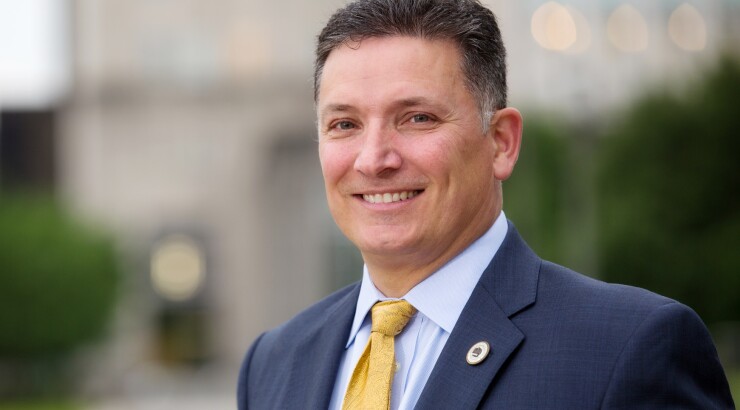Rebuffed earlier this year on a plan to redirect unclaimed property funds to municipalities, Louisiana State Treasurer John Schroder said he will no longer transfer that revenue to the state general fund at the end of each fiscal year.
A portion of the unclaimed revenue backs $111.7 million of special revenue bonds issued in 2013 and $73.8 million issued in 2015 to finance a portion two widening projects on Interstate 49. The final maturity date on the debt is in 2036.

Schroder's news release Thursday made no mention of the bonds. A Treasury spokeswoman said Tuesday that the revenues to pay debt service on the 2013 and 2015 bonds are transferred before the end of each fiscal year.
“We always are going to pay that” debt service, the spokeswoman said.
The bonds are rated A1 by Moody's Investors Service and A-plus by S&P Global Ratings. They were rated Aa3 and AA-minus at issuance.
“It infuriates me that big government takes it upon itself to decide what does and doesn't belong to Louisiana citizens,” Schroder, a Republican, said in a statement. “Clearly this money belongs to the rightful owners, and it's my job to return it.”
Since 2008, a state law has required $15 million to be deposited annually in the unclaimed property leverage fund to pay the bond debt, according to historical collections and deposits
Louisiana has been making transfers of leftover unclaimed revenues to the general fund since at least 2004, the EMMA filing shows. The revenues help fund the state budget.
In May, Schroder backed House Bill 291 during this year’s legislative session that would have dedicated leftover unclaimed revenues to an account to pay claims and to a state revolving loan fund to help municipalities finance infrastructure needs.
Gov. John Bel Edwards, a Democrat who was reelected a second term during a runoff in November, opposed the measure.
While it passed the House 78 -17 on May 22, the bill died in the Senate Committee on Finance.
In July, Schroder objected to sending the unclaimed revenues to the state, saying then that he believed the transfers were illegal,
Edwards' office didn't immediately respond to a request for comment concerning Schroder's stance.
“I am willing to go to court to protect this money,” Schroder’s statement said Thursday. “Even if you could somehow prove the law allows for the money to be spent by government, the practice should be stopped. Let's for once use a little common sense.”
Since 2004 though fiscal 2018, the state Treasury has collected an average of $71.7 million each year from uncollected wages, insurance proceeds and utility deposits, the EMMA posting said. During the same period, the state returned an average of $26.3 million to rightful owners.
On average each year since 2004, $30.7 million of leftover unclaimed funds have been transferred to the state general fund. Starting in 2008, a state law has required $15 million to be deposited annually in the unclaimed property leverage fund, the EMMA filing shows.
Schroder said his reason for halting the general fund transfers now is because enhanced technology and other improvements in the unclaimed property program this year increased the amount of money returned to owners.
In fiscal 2019, he said the number of unclaimed property checks Treasury issued “skyrocketed” to 208,000 from an average of 31,000 checks in prior years. The total amount of money refunded to owners was $52.2 million in 2019, the highest ever given back in the history of the program.
Schroder contended that at the end of fiscal 2018, his agency didn’t have enough money on hand and had to wait to pay claims.
The EMMA disclosure shows that $85.8 million was collected in fiscal 2018 and $30.6 million was refunded to owners, while the required $15 million was deposited to the bond leverage fund and $36.9 million was sent to the general fund. The document didn’t indicated that all claims weren’t paid.
The state’s 2019 comprehensive annual financial report is due out in January.





